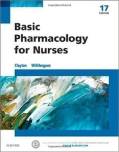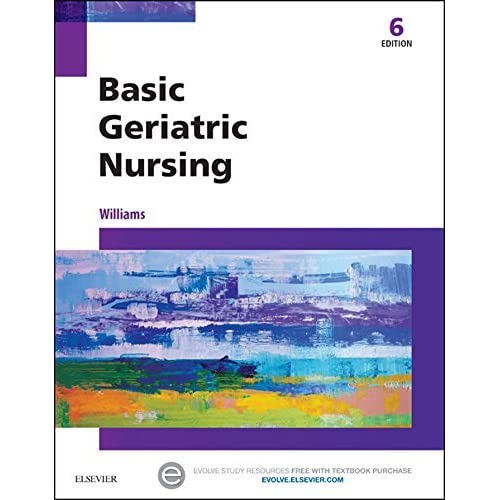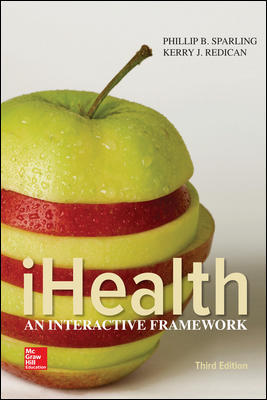Basic Pharmacology For Nurses 17th Edition By Clayton-Test Bank
Original price was: $25.00.$14.97Current price is: $14.97.
Format: Downloadable ZIP File
Resource Type: Test bank
Duration: Unlimited downloads
Delivery: Instant Download
Pharmacology is a crucial aspect of nursing practice that involves understanding the effects of medications on the human body. Nurses play a vital role in medication management and safety for patients. The “Basic Pharmacology For Nurses 17th Edition By Clayton-Test Bank” provides valuable resources for nursing students to enhance their knowledge in this field.
The test bank for Basic Pharmacology For Nurses 17th Edition By Clayton includes multiple-choice questions that test the students’ understanding of key concepts related to pharmacology. These questions cover various topics such as drug reactions, interactions, blood levels, and drug transport mechanisms. By practicing these questions, students can assess their comprehension and application of pharmacological principles.
FAQs:
Q: What is the significance of drug interactions in pharmacology?
A: Drug interactions can affect the effectiveness and safety of medications. It occurs when the effect of one drug is altered by another drug, leading to potential consequences for the patient.
Q: How are drug blood levels used in clinical practice?
A: Drug blood levels help healthcare providers determine if the amount of drug in the body is within the therapeutic range. This information is crucial for optimizing the effectiveness of medications.
Q: What is distribution in pharmacology?
A: Distribution refers to the process by which drugs are transported by circulating body fluids to the sites of action in the body. It plays a crucial role in drug delivery and efficacy.
In conclusion, the Basic Pharmacology For Nurses 17th Edition By Clayton-Test Bank serves as a valuable resource for nursing students preparing for exams and enhancing their understanding of pharmacological principles. By mastering the concepts presented in this test bank, students can become proficient in medication management and ensure safe and effective patient care.In the field of nursing, understanding drug administration and pharmacology is crucial for providing safe and effective care to patients. Nurses must have a solid grasp of concepts such as drug blood levels, drug metabolism, and drug interactions to ensure positive patient outcomes. Test Banks are a valuable resource for nursing students and professionals looking to enhance their knowledge in pharmacology and drug administration.
Drug blood levels play a key role in determining the effectiveness and safety of medication. Peak levels represent the maximum concentration of a drug in the blood before metabolism begins to decrease the circulating amount. Trough levels, on the other hand, indicate the minimum concentration of a drug after metabolism has reduced the circulating amount but before the next dose is administered. Therapeutic levels refer to the range of blood concentrations within which a medication is deemed effective.
Understanding the half-life of a drug is essential in determining the timing of drug elimination from the body. For instance, if a nurse administers a drug with a half-life of 8 hours and gives a 50mg dose at 6:00 AM, 25mg of the drug will be eliminated by 2:00 PM. This knowledge is crucial for ensuring appropriate dosing intervals and preventing drug toxicity.
When it comes to mixing drugs in the same syringe, compatibility is a critical factor to consider. Nurses must ensure that mixing two drugs does not lead to deterioration or adverse reactions. Knowledge of absorption rates, drug blood levels, and adverse effects are also important but secondary to drug compatibility when mixing medications.
In cases where patients exhibit allergic reactions to medications, nurses play a vital role in providing accurate instructions and interventions. For example, if a patient develops hives and itching after receiving a drug for the first time, the nurse should advise stopping the medication and recommending the patient to wear a medical alert bracelet to communicate the allergy effectively. This proactive approach can help prevent severe allergic reactions during future exposures.
In assessing a patient’s health history, nurses must identify factors that can impact drug metabolism. Conditions such as liver disease can significantly affect the metabolism of drugs since the liver enzyme systems are primarily responsible for drug metabolism. While other factors like diet, lifestyle, and occupation can influence drug absorption or exposure to environmental pollutants, liver health has the most substantial impact on drug metabolism.
FAQs:
Q: What are drug blood levels, and why are they important?
A: Drug blood levels refer to the concentration of a medication in the bloodstream, which plays a crucial role in determining the effectiveness and safety of the drug. Monitoring drug blood levels helps healthcare providers adjust dosages and ensure optimal therapeutic outcomes.
Q: Why is drug compatibility important when mixing medications in the same syringe?
A: Drug compatibility ensures that combining two or more medications in the same syringe does not lead to chemical interactions that could compromise the effectiveness or safety of the drugs. Nurses must verify compatibility to prevent adverse reactions or treatment failures.
Q: How can nurses identify factors that influence drug metabolism in patients?
A: Nurses can assess a patient’s health history to identify conditions like liver disease, which can significantly impact drug metabolism. Understanding a patient’s medical background and lifestyle factors can help nurses tailor medication regimens to ensure optimal therapeutic effects.
Conclusion:
In conclusion, pharmacology and drug administration are critical components of nursing practice, requiring thorough knowledge and attention to detail. Test Banks provide valuable resources for nursing students and professionals seeking to enhance their understanding of drug-related concepts and prepare for exams or certifications in the field. By mastering drug blood levels, drug metabolism, and drug interactions, nurses can deliver safe and effective care to patients, contributing to positive health outcomes and improved quality of life.
User Reviews
Be the first to review “Basic Pharmacology For Nurses 17th Edition By Clayton-Test Bank”

Original price was: $25.00.$14.97Current price is: $14.97.






There are no reviews yet.